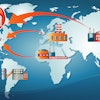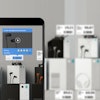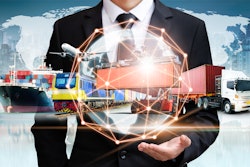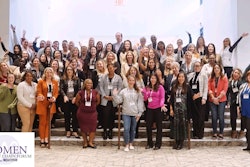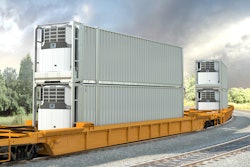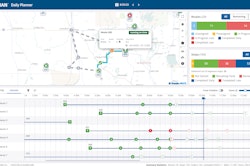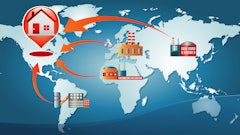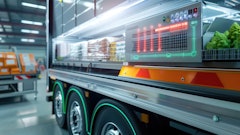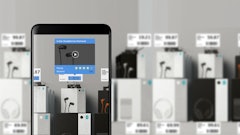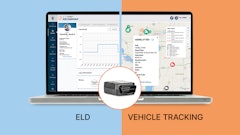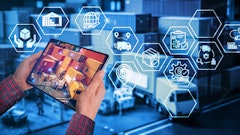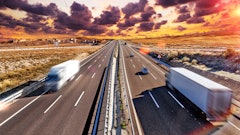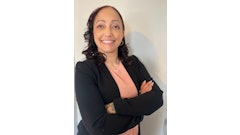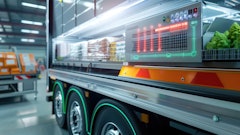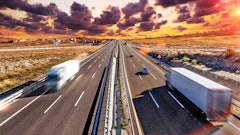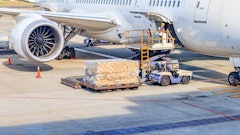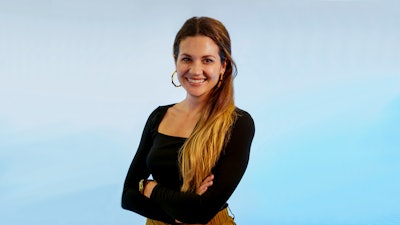
Alexis: Hello and welcome. Thanks for joining me here today, Kacy. The Food Logistics and Supply and Demand Chain Executive communities are always looking for ways to attract and retain the best employees. In an environment where all we seem to hear about is silent quitting and the Great Resignation, the success stories are sometimes overlooked. But Trailer Bridge is one of those stories. Give us a little intro to explain to us how that happened.
Kacy: Thank you for having me, Alexis – this is a story I always love telling! Trailer Bridge has been around this industry for more than 30 years and in the past decade has expanded its service offerings, and with it focused on our people and our culture. Under the leadership of our current CEO, Trailer Bridge made a conscious decision to build the future of our company on service. For us service is how we treat each other and when we get that right in the office, it translates to our customers. I’ve spent my career on the employee-side of organizations, and I can confidently say the work we do here at TB is transformational. Our culture is focused on the employee from the time we recruit them for a role through their career with us and then as they transition out, if that’s their path. Pair all of that with a dynamic industry like ours and it’s the perfect combination of rewarding and fun.
I'm someone who's new to the industry, and I can agree with you there! There's always something happening, there's always something interesting, and there are people from all different backgrounds, which is pertinent to the conversation today. Let’s start by talking about Trailer Bridge’s approach to workforce development.
Of course! For us, workforce development begins and ends with caring for our employees – dare we say the L word. There are people that would argue the word ‘love’ doesn’t belong in the workplace, but we believe it does. That care looks like investing in training and development opportunities for not only their current position but the next one as well. We have an internal team dedicated to creating and facilitating training ranging from soft skills to public speaking, technical skills and more.
The other piece to that is creating an environment that offers growth opportunities, which is a huge focus of ours. When our company grows it creates internal opportunities for our team members to take the next step in their career and in leadership.
We simply care, and in our eyes, it’s really just that simple.
I love that it’s so simple. A mission statement should be easy to remember. Everyone's constantly evolving. When you talk about growth, there's a buzzword right now around “learning culture.” What's your perspective on that? What does it mean for the future of training, development, and specifically in logistics?
The evolution of today’s workforce is driving the focus on learning, but I believe it’s simply a new term for the same thing our employees have always wanted – to grow. And let’s be real – it’s something we all want, the opportunity to become better at our craft.
Now, the generational mix we have in the workforce today is where our focus should be when we talk about the future of training and development. These individuals have different experiences related to things like technology adoption, workplace expectations, not to mention economic and world events that have shaped who they are and how they learn. As leaders we must keep this in mind when developing training programs and building environments where our employees can expand their minds and skillsets. The future of training is personalized and inclusive no matter the industry. We like to say logistics is personal and that includes how we serve our people.
When you think about the workforce as a whole, there's so many skill gaps that exist that companies often have to overlook when hiring because of labor shortages. How do you identify and address skill gaps within your workforce?
The labor market has certainly been tricky the past few years. As business leaders we have had to be quite creative in how we build our workforce through it all. The logistics industry has a wide range of roles with varying skill levels and depending on the role is where some may have seen a wider gap in available labor.
At Trailer Bridge, we have a concentrated focus on the match between the individual and the role prior to the hire. In the hiring process, we use skills-based testing as well as personality testing to help identify how the candidates’ strengths align with the role. We also conduct job shadowing prior to hire – this really allows the candidate to understand the role and ensures a good fit based on where they are.
After the hire, we continue to work closely with employees to understand their career paths and provide ongoing training through internal programming as well as external resources. This is where having those personal relationships are important; there must be that open dialogue between the employee and their leader around what their learning needs are.
When I chatted with Mitch Luciano, Trailer Bridge CEO, in Part 1 of this series, we went over collaboration and how important that is at Trailer Bridge. He mentioned software, and so did you. So, beyond collaboration, how is technology affecting reskilling in logistics?
For us at Trailer Bridge, we are undergoing a major technology implementation with a new TMS system. This has required a complete reskilling for our logistics team; the platform they work on, the structure of how they manage their day-to-day role and communicate with each other.
To support this shift in our processes, our internal T&D team has been focused on facilitating in-person training opportunities as well as virtual classes and self-guided learning videos. Ultimately this technology shift is about better serving our customers but also, it supports our employees with a more seamless experience in how they handle cargo.
Technology is not only the driver for reskilling, but it also allows for the development of more robust training with interactive experiences and dynamic visuals. It’s not going away and its always evolving which isn’t a bad thing. You just have to have an open mindset about technology and care about your people enough to learn it.
Exactly. Technology is not going away, and ultimately AI is something probably we're all going to have to implement in some way or another. But is it just a buzzword today?
I think there is a place for AI to serve as a support tool for our workforce, but it won’t replace the human element in what we do. Our teams are exploring where it makes sense in our business – from marketing to account management – it’s about being open to adopting new technologies in a way that supports business growth and customer care.
How do these ideas around continuous improvement, collaboration tools, technology implementation and workforce development influence company culture as a whole?
All the ideas we talked about today can and will influence company culture. Our belief at Trailer Bridge is that when we do these things with a heart of service – we all win; our team members experience growth, because of that our customers receive better service and ultimately our business grows.
It goes back to what I was saying earlier about caring for people and creating an environment where they have the space to be themselves and grow. When you care, you listen. Listening allows us to do all the things you mentioned – collaboration, implementation of new technology, training – in a way that better fits the needs of our people.
Culture is not something that is created one time and then boom you’re done. It’s a continuous force of energy nurtured by everyone in the organization no matter where they sit, and when you get it right, you attract the people who want to be a part of it. And Trailer Bridge is the perfect example of this.

